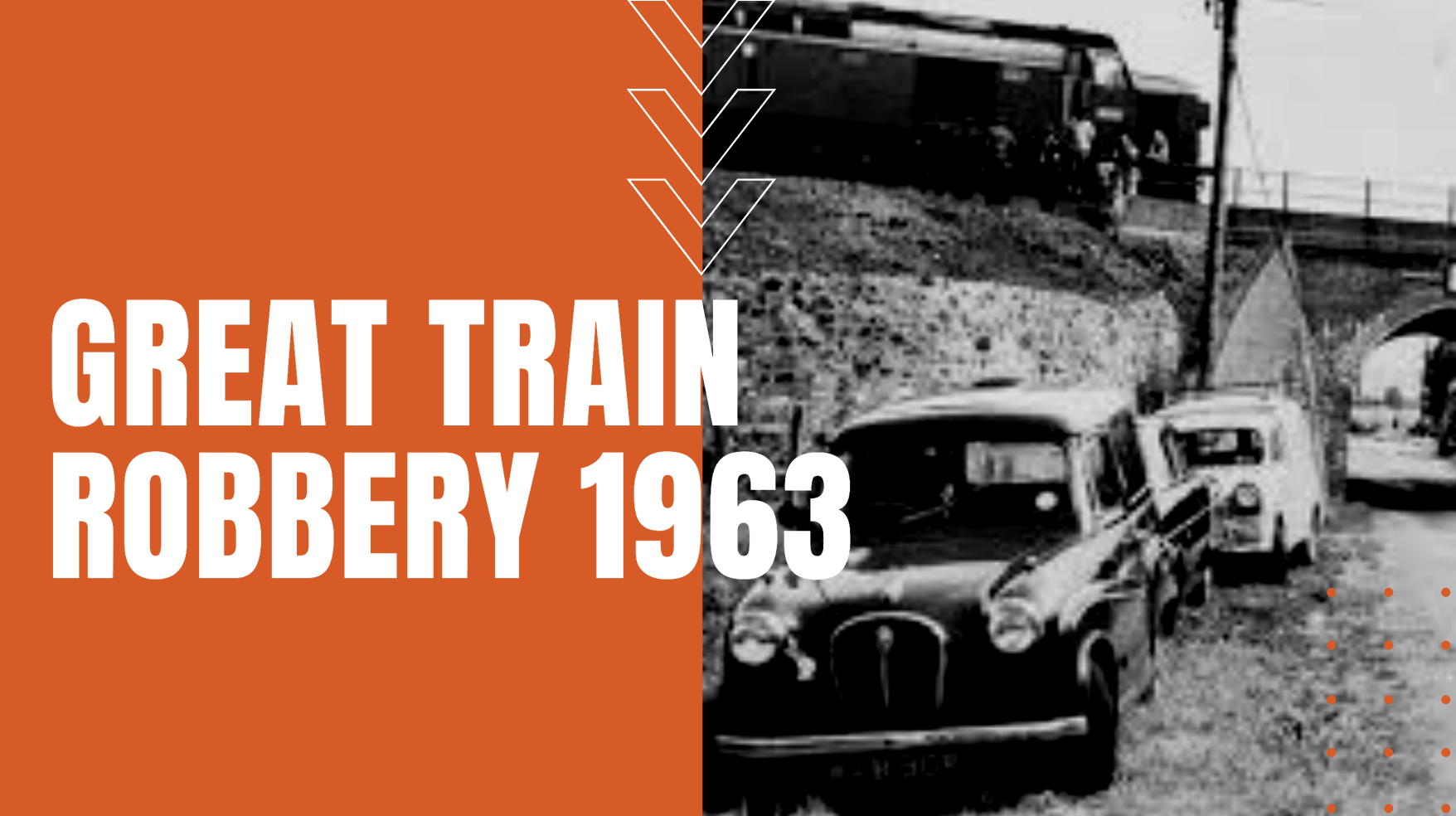The Great Train Robbery of 1963

On August the 8th, 1963, Britain’s most infamous train robbery took place on the Royal Mail Train known as the Glasgow to London traveling post office.
The operation to steal millions of pounds of used unmarked bills was planned with precision and carried out with unparalleled daring. The thieves targeted the second carriage from the front, where valuables and cash were stored.
Bank Holiday Increases Royal Mail Train Take
Usually, the train only carried about 300,000 pounds, but because it had been a bank holiday weekend in Scotland, the load had grown to around 2.3 million pounds.
The overnight train left Glasgow on Wednesday night, and at three the next morning, driver Jack Mills had just passed Buckinghamshire when he saw a red track signal, ordering him to stop the train at Sears Crossing. What Mills didn’t know was that the signal had been rigged by stuffing a glove over the green light while attaching a 6-volt battery to the red.
Co-driver David Whitby got out of the train to see what the problem was, soon discovering that the railway communications cable had been cut. Before he could retake the train, he was attacked, handcuffed and thrown down an embankment.
Meanwhile, one of the robbers boarded the train and knocked Jack Mills unconscious.
Charlie Wilson
It didn’t take long for authorities to track down the gang’s hideout, where they were summarily arrested after a failed attempt to flee. In 1964, 13 train robbers were sentenced to a combined 307 years in prison for carrying out Britain’s most daring train robbery, but just four months later, Charlie Wilson broke out in an escape attempt which proved to be as daring as the robbery itself.
A gang of men on the outside stole a builder’s ladder to scale the wall of a mental institution positioned next door to the prison, freeing Wilson and three others from their cells using a stolen master key. A huge manhunt was soon underway, but it took police three years to track Wilson down to his hiding place in Canada.
Ronnie Biggs
Train robber Ronnie Biggs was similarly disinclined to serve out his sentence and plotted an escape that would prove far more successful than Charlie Wilson’s attempt.
He escaped first to Paris, then to Australia, finally landing in Brazil where he forged a new life in Rio, becoming a tourist attraction for traveling Brits. In 1999 he invited more than 100 people to his 70th birthday party.
When his health failed after a series of strokes, in 2001 he returned to England, where he was sent back to jail to serve out the remainder of his sentence. Biggs was released from prison on compassionate grounds in August of 2009, passing away in a nursing home in December 2013.
Train driver Jack Mills was so traumatized by the robbery that he would never work again.
